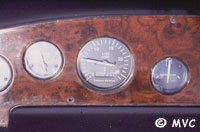
Learning
The most hazardous part of boating is getting in and out of port. On the high seas, there is plenty of room and, given clement weather conditions, there should be no problems. Winter fog is a local problem and can be one of the most dangerous elements faced by an unskilled navigator. Unlike with a motor car, people can buy a boat and set forth with no licence and no formal training whatsoever - this is not recommended. Many marinas offer training in the skills needed to leave a berth and moor on return. Gibraltar, for example, has a number of sailing schools which offer excellent tuition.
The Spanish Direccion General de la Marina Mercante (The Merchant Marine Directorate) produces two excellent booklets, one entitled 'A Practical Guide to Nautical Recreation' and the other 'Safer Water Sports', both of which have English, German and French translations. They are available at most marinas and at many chandlers.
The Escuela de Navigacion (Nautical School), based in Estepona Port, is one of a number of Spanish navigational academies which offer a full range of courses, to equip skippers for both local and deep sea work, in vessels from the smallest to the largest.

The most basic qualification is the Autorizacion Federativa Nautico Deportiva (Titulin), which allows control over motor boats of no more than six metres long and with engines of less than 54CV, during daylight hours in controlled waters. Passing a theoretical exam is also required.
Next up is the Patron de Navigacion Basica, self-explanatory, which extends the limits to 8 metres for sailing boats and keeps them at 6 metres for motorised craft. Passing the theory exam is also accompanied by a 4-hour practical sailing test.
As we move on up the list, we come to the Patron de Embarcaciones de Recreo (Pleasure Boat Skipper), which allows control over motorised and sailing craft up to 12 metres long, for use between the coastline and a parallel line drawn 12 miles offshore, as well as for inter-island navigation in the Balearics and the Canary Islands. Again, theory and practical exams are involved.
Patron de Yate (Yacht Skipper) qualification takes the maximum boat length up to 20 metres, with the allowable distance offshore upped to 60 miles and, finally, the top rank is Capitan de Yate, self-explanatory, which has no limits set on it.
Full details on all of these courses and exams are available from any of the recognised nautical academies in Andalucia.